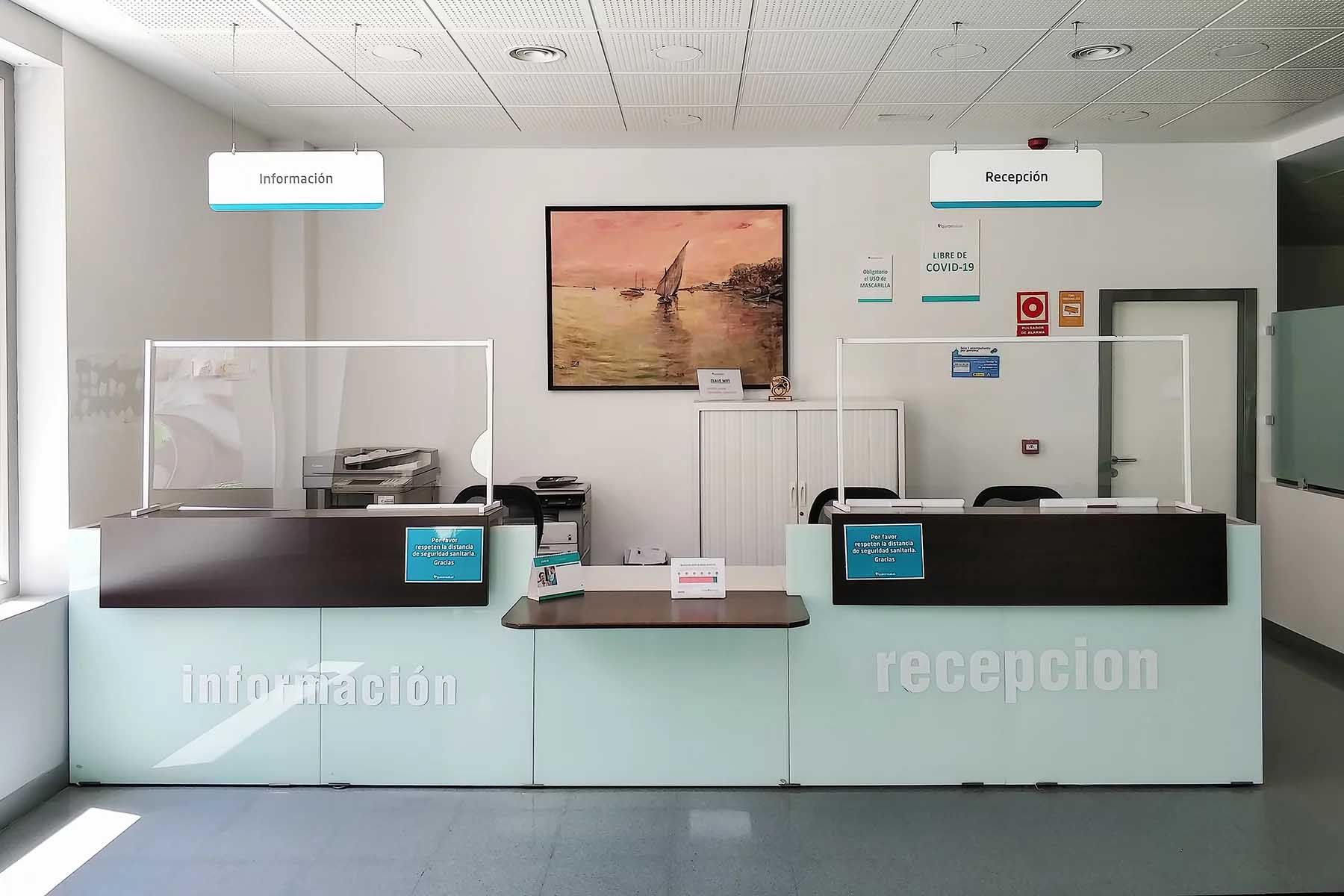Picking up your life and moving to Spain is certainly exciting, but first you’ll need to navigate the country’s visa process and submit all required documents. Which documents you need depends on where you’re from and how long you intend to stay. It’s critical to check with your local consulate for the rules that apply to you.
If your stay is under 90 days, all you’ll need is health insurance to cover your time in Spain. For longer stays, you’ll need proof of health insurance and a medical certificate of good health from a physician.
Keep reading for more on the following topics:
ASISA
ASISA is the top choice for international citizens who require health insurance that meets Spanish visa and residency requirements. They can help you choose the perfect plan, including a Medical Emergency Hotline with support in English and access to Spain’s largest network of hospitals and health facilities.
Medical requirements for Spanish visas
All Schengen area and Spanish national visas have medical requirements. Which type of visa you need depends on how long you intend to stay in the country and your nationality.
Those moving with a Spanish visa, whether studying, working, investing, or retiring, will need both health insurance and a medical certificate in almost every single case.

The health requirements for Spanish visas generally adhere to these rules:
| Type | Relevant nationalities | Time period | Medical requirements |
| Schengen area visa | Third countries without Schengen treaties | Up to 90 days (short-term stay) | Health insurance coverage |
| Spanish national visa | Anyone from outside the EU, EEA, or Switzerland | More than 90 days (long-term stay) | Health insurance coverage and a medical certificate |
However, it’s important to check with your local Spanish embassy or consulate to see if different rules apply. Rules can vary according to your nationality, length of stay, and visa type. Once you’ve selected a consulate, you can find more information about visas via the ‘consular services’ tab.
What are the vaccinations required to travel to Spain?
At this time, there are no specific required vaccinations for a Spanish visa. Having said that, it’s good to make sure you’re up-to-date on the routine vaccinations for your country of origin. You might also want to check with your doctor or the Spanish consulate to see if there are any additional vaccinations to protect you during your time in Spain.
Who needs health insurance to get a Spanish visa?
Everyone entering Spain will need health insurance before traveling to the country. Those entering Spain on a Schengen or national visa must have health insurance coverage.
Providing proof of coverage, known as the certificate of health insurance (certificado de aseguramiento), is part of the visa application process and you cannot proceed without it. If you have questions about your health insurance certificate, contact your insurance provider. Insurance cards are not accepted for Spanish national or Schengen area visas.

Even if you do not need a visa to travel to Spain, it’s still advisable that you have health insurance to cover your entire stay. Depending on which country you’re from, medical costs incurred abroad can be extremely high and are usually not included in your domestic health insurance policy.
For EU citizens, your European Health Insurance Card (EHIC) will allow you to access the Spanish healthcare system.
For UK citizens, the Spanish government will most likely accept your Global Health Insurance Card (GHIC) in lieu of a private health insurance cover. This criterion can vary according to the consulate you are using for the visa application process.
How to get health insurance for a Spanish visa
You can purchase a Spanish visa-compliant health insurance plan quickly and easily from a trusted company like ASISA.
It’s important to make sure your health insurance provider is authorized to operate in Spain and that they’re prepared to give you the certificate of health insurance (certificado de aseguramiento) you need for a visa application.
Is your policy suitable for visa purposes?
The certificate of health insurance (certificado de aseguramiento) is a document issued by the health insurance provider. It contains all the key characteristics that the visa officer will be checking to confirm your health insurance meets the standards required.
A proper certificate of health insurance will explicitly state:
- That the health insurance company is registered in Spain and authorized to operate in the country
- That the period of coverage includes your entire stay in Spain – ideally the specific dates that the policy is active, which correspond with your stay
- That its coverage amount is equivalent to Spanish National Health Insurance (i.e., unlimited cover unless otherwise stated by the specific consulate)
- That the cover does not include copayments
- That the cover does not include deductibles
- That the cover is fully active from day one of the coverage and not subject to a waiting period
- That it includes repatriation from Spain to the country of origin – both repatriation in case of serious health condition, and repatriation of remains in case of death

Some additional requirements include:
- The text must be in Spanish (you’ll need to request a legally valid translation to Spanish, notarized, and with a Hague Convention apostille where necessary)
- The certificate must be signed by a person from the health insurance company with the authority to issue certificates, and may also need a rubber stamp
- If you’re applying for a multiple entry visa (to leave and re-enter the Schengen area as often as you like), your insurance must be valid for the first entry. For any future trips, you’ll need to make sure your insurance is extended or you take out a new policy.
- In some cases, they’ll require proof of payment. Most consulates accept a receipt from the insurance company (or the broker), but you can also use a bank statement
If you’re having trouble deciding which healthcare plan is right for you, insurance companies like ASISA work specifically with expats and offer services in English.
Who needs a medical certificate to get a visa for Spain?
If you’re applying for a Spanish national visa, you need to submit a medical certificate as part of the process. A medical certificate is an official written statement signed by a doctor. It states that you don’t have any diseases that threaten public health according to the 2005 International Health Regulations.

The rules for medical certificates can vary by visa type and country of origin. You should check your Spanish consulate’s website for specific instructions. However, in general, you can expect the following regulations:
- The certificate’s issue date cannot be more than three months before submitting the visa application
- The certificate must include the doctor’s name and signature, plus their license number and expiration date, along with an official stamp
- You must use a template provided by your Spanish consulate or the doctor’s official letterhead paper for the certificate
- If there is no version of the certificate written in Spanish, a certified translation is required
You are expected to submit the original medical certificate with your Spanish visa application. You are also responsible for presenting it for possible inspection at the border upon arriving in Spain.
How to get a medical certificate from your doctor
The first step in getting a medical certificate for your travels to Spain is making an appointment with an approved doctor or clinic for a general check-up. Be sure to mention beforehand that you have plans to travel to Spain and that you’ll need a medical certificate. You can likely email the consulate’s medical certificate template directly to your doctor’s office.
Fill out your portion of the paperwork at the same time your doctor fills out theirs. Then take the original one home with you. You’ll need to bring this version to the visa appointment at your consulate so that they can make a copy of it. They’ll give you back the original to take with you to Spain.
Medical requirements for dependents and family members
The health insurance requirement for Schengen area visas applies equally to all dependents and family members entering Spain. This means every person applying for a visa must have insurance coverage that meets the requirements stated in the section above.

You and your family members may be able to get a medical certificate from the same doctor, possibly in the same visit. Just check with your local consulate and ask about the process for a family traveling to Spain together.
Health insurance and medical certificates for visa renewal
Those staying in the country long-term do not need to present a medical certificate again to renew their Spanish visa. However, they do need to submit proof of health insurance.
When it comes time to renew your Spanish visa or residence permit, you must show that you have public or private health insurance coverage. Foreigners only need a medical certificate or examination the first time they enter Spain.
Short-term stays in Spain, with a Schengen area visa, are usually not renewable. The exception to this is if you can prove you are unable to leave the country for some reason.
Useful resources
- Medical certificate of good health – a sample medical certificate template, from the Spanish consulate in Washington D.C.
- Spanish embassies and consulates – list of regional Spanish consulates and embassies by country
- WHO Health Regulations – the International Health Regulations for preventing disease transmission









